Larry Josephson, pioneering producer and freeform host, dies at 83
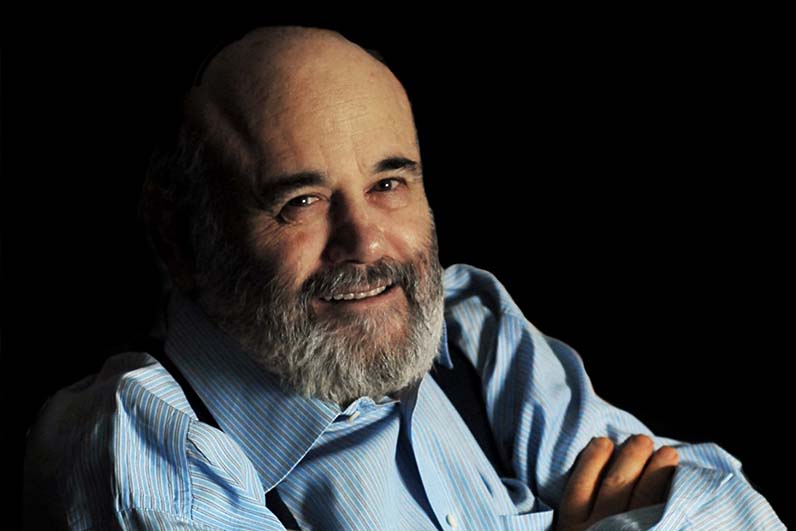
Dania Christensen
Josephson in an undated photo.
Larry Josephson, a prolific public radio producer who hosted a groundbreaking freeform radio show, made documentaries and played a pivotal role in establishing the independent producer community, died Wednesday. He was 83.
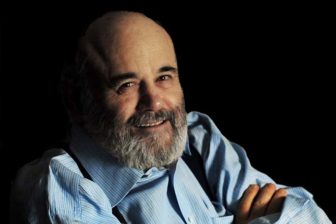
His daughter Jennie Josephson confirmed his death. Josephson died in a nursing home in New York City, where he received care for Parkinson’s disease and other medical issues. No official cause of death has been declared.
“He was a complex and often underappreciated provocateur and visionary about the role of audio art and the impact that it could have,” said Karen Michel, a veteran independent producer in Beacon, N.Y., whose work has been heard on NPR for close to 40 years.
With funding from CPB and the National Endowment for the Arts, Josephson organized the Airlie Seminar on the Art of Radio, a seminal gathering for audio producers that shaped the craft and sound of public radio programming. Several were staged between 1977 and 1983.
“He brought together a new tribe, people who are still friends and collaborators today,” said Jay Allison, who met the independent producers Scott Carrier and the Kitchen Sisters at Airlie.
Allison called Josephson “an irascible mensch, a gadfly and builder, a convener and exploder” in a post on the listserv of the Association of Independents in Radio, which Josephson helped found.
“You’d see his name on an email on the AIR listserv and you’d go ‘uh-oh,’” Allison said, describing how Josephson’s contrarian tendencies could color colleagues’ views of him. “Sometimes people found his irascibility tedious and would write-off the other beautiful things he did. I think the power of his heart is what should abide.”
“Larry the J,” as his close associates referred to him, began his half-century radio career in 1965 as a volunteer at Pacifica’s WBAI in New York City. At the time he was working as a systems analyst and programmer at IBM.
Josephson became one of WBAI’s most popular live radio personalities, thanks to the “grumpy” morning program he began hosting in 1966, In the Beginning. No other programmers were eager to get up for the 7–9 a.m. air slot. The show featured a mix of phone calls, interviews, recorded music and personal confessions.
In Marc Fisher’s 2007 book, Something in the Air: Radio, Rock and the Revolution that Shaped a Nation, Josephson is quoted as saying, “There is now in public radio no place where someone like me could go on and talk about my marriages and my divorce and the death of my child.”
It’s a curious comment, given that Pacifica is still a place where such intimate matters are still discussed. For many years Josephson expressed great disappointment that WBAI’s programming was more focused on politics than good radio. He also abhorred the continuing internecine battles that continue to rage inside Pacifica.
Josephson was best known for sipping coffee and eating bagels while behind the mic. Years later, a New York Daily News story about Howard Stern, dubbed Josephson “the original bad boy of morning radio.” The description prompted the shock jock to call Josephson at home on the air. Josephson hung up on Stern.
Josephson was the last survivor among WBAI’s three freeform radio stars of the 1960’s. Steve Post died in 2014. Bob Fass passed away in 2021. Josephson was less political than both of them.
“Larry was not an automatic leftist or rightist. …He was a logical guy who came out of IBM,” said Marty Goldensohn who served as WBAI’s news director in the late 1970’s. “He would not get caught up in some sort of leftist claptrap if it didn’t make sense to him, and [he] would criticize the left when it was being out of touch. He honored intelligence on all sides.”
Josephson hosted the CPB-funded Bridges: A Liberal Conservative Dialogue, from 1994 to 1999, interviewing such conservative luminaries as Milton Friedman, Rush Limbaugh, John McCain and Shelby Steel.
Many of the women who worked with Josephson in public radio called him out as a misogynist. Caryl Ratner is one of three women who produced a feminist program called Electra Rewired on WBAI. During a tribute to Josephson on the station last night, she recalled that he trashed the show and feminism in general on the air.
“He was the original politically incorrect guy on the radio,” Ratner said, “and that’s why I loved him.”
The audio archive that survives Josephson includes Only In America, an eight-part documentary series on the history of American Jewry, as well as Classic Bob & Ray, a 26-part series that spans the radio comedy duo’s entire career. Another series he produced, The Bob and Ray Public Radio Show, won a Peabody award.
Like some of his other WBAI colleagues, Josephson spent time at Pacifica’s Berkeley station, KPFA. While in Berkeley, a documentary he produced about a convention for people with dwarfism won an Armstrong Award.
Until the pandemic arrived in New York City, Josephson ran a recording studio out of his spacious, rent-stabilized apartment on Central Park West. Jennie Josephson, who remembers falling asleep listening to Bob and Ray cassettes at the age of 10, referred to Josephson as “a good dad, a difficult dad.”
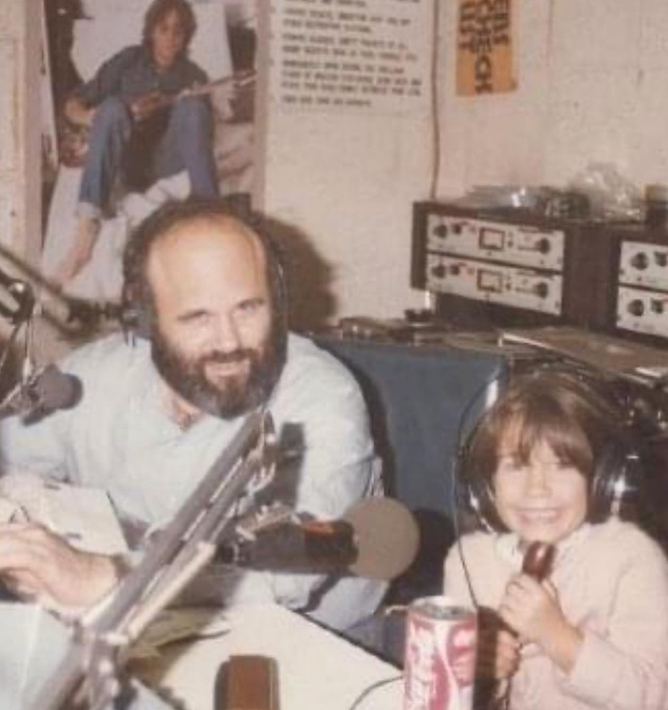
She spent the last few years shuttling back and forth between her home in Los Angeles and New York, trying to help her father stay in his home. Accommodations included installing grab bars on numerous surfaces in his apartment and audio speakers in his bedroom, but Josephson fell several times. He spent more than a year hospitalized and in nursing homes. In an email sent after her father’s death, Jennie Josephson wrote that in the last months of his life he “was increasingly a prisoner in his own body.”
In April, Josephson made a rare foray out of the nursing home to attend the premiere of a documentary about his WBAI colleague Steve Post. He was frail and sitting in a wheelchair as Marty Goldensohn kissed the top of his head.
Goldensohn remembers Josephson as the man with “millions of puns.” For years Josephson emailed jokes, many of them quite politically incorrect, to friends.
“For months I wouldn’t talk to him because some of them were intentionally offensive,” Michel recalled. She was one of the many women that Josephson had proposed to unsuccessfully.
Josephson’s website is down at the moment, so visitors aren’t able to read the 2,600-word memoir he wrote when he turned 75. But his LinkedIn profile where he declares, “I have opposed commercialism in all its evil forms (esp. the use of research) in public broadcasting,” is still accessible.
When public radio stations began using audience research in programming decisions, Josephson vehemently opposed the practice. In 1996 he debated audience researcher David Giovannoni, founder of Audience Research Analysis who also directed audience research and program evaluation at NPR. Before a standing-room-only crowd at the Public Radio Conference, the two squared off in a session Josephson titled “Picasso vs. Giovannoni.”
“It was actually a lot of fun,” recalled Giovannoni. “He called me a ‘numbers Nazi’ and I called him an ‘ignorant slut.’ It was all in good fun. Larry and I went out for tapas afterward.”
Tapas were not on the menu at the nursing home where Josephson spent the last several months of his life. One of Josephson’s old WBAI colleagues brought him a box of dove bars. Another sent him an iPad. While living in the nursing home he was forced to use his formal legal name, Norman Laurence Josephson. As fate would have it, his loud and contentious roommate was a guy named Larry.
“He’s Norman, I’m Larry!” the roommate snapped.
In addition to his daughter Jennie, Josephson’s survivors include another daughter, Rebecca Josephson, a stepson and two grandchildren.
A memorial is planned for later in the year.


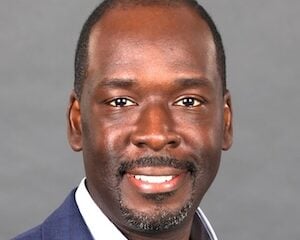
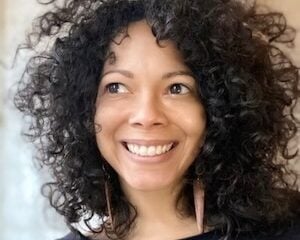


Larry Josephson’s website is down at the moment. And Larry Josephson is permanently down.
I loved him. He was my best teacher I had. Started my days off with a mental bang, great music
( William Tell ) …and a good nourishing
intellectual breakfast.
Adios amigo!
Luis
Larry’s site, radioart.org, is accessible through the Internet Archive, here:
https://web.archive.org/web/20220000000000*/radioart.org
I have never loved or depended on a radio host as much as I did Larry. He was the best of the best, at performing as morning talent, and so much else. More in what I wrote here, in 2014: http://blogs.harvard.edu/doc/2014/04/06/my-top-ten-talk-radio-hosts-of-all-time/
I love the way different obits pick up different aspects of Larry’s life history and persona. Here are a couple more I haven’t seen. Larry used to talk about being in the control room at WBAI when it was invaded, he was thrown out, and the station was taken over. I imagine, knowing Larry, that he was anathema to the lefties. (I had some humdinger arguments with him when he took what I thought were unreasoned oppositional stands.) I met him when he returned to Berkeley to complete his undergraduate degree in linguistics. He said he had to leave the air because he had been talking about his baby (with Charity) and the baby died. He met Valerie there and they married (staying at my house on Martha’s Vineyard) and had Jennie, whom he adored but towards whom he could be difficult. Larry loved babies, children. He would twinkle at them and engage with any child he saw. He was an incredibly loyal and supportive friend. He managed to maintain our friendship through bitter fights — about women and feminism, racism, and the worst was about Tienanmen Square, and whether the NY Times reporter should have given the name of a man he interviewed, who was found and killed. Larry was wrong. Except when he was married to Valerie or in one of his frequent romantic relationships, I was one of the many women he proposed to, fairly often , including offering inheritance of his rent-controlled apartment. I miss those proposals, the music, the jokes and the groan-worthy incessant puns. the warm welcome, the smile and hugs.
Appreciate you stories and recollections, Chris!